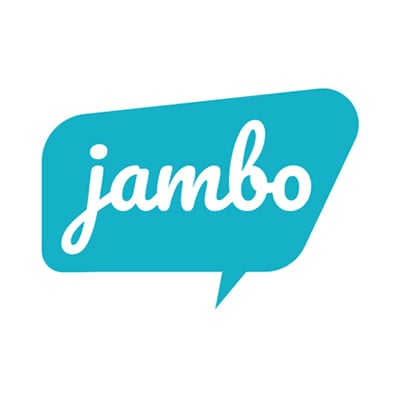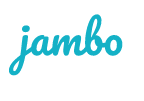
Que vous ayez plusieurs praticiens de l'engagement des parties prenantes dans votre équipe, que vous travailliez avec des sous-traitants ou qu'une seule personne communique avec tout le monde, vous devez veiller à ce que votre message sur l'engagement des parties prenantes soit cohérent sur l'ensemble de vos canaux de communication.
Un message cohérent a un impact sur la façon dont les parties prenantes et les communautés perçoivent vos projets et sur la confiance qu'elles accordent à votre organisation, alors qu'un message mixte peut semer la confusion chez les parties prenantes et les communautés et briser cette confiance vitale.
4 conseils pour assurer la cohérence des messages relatifs à l'engagement des parties prenantes
1. Élaborer vos messages clés dès le départ
Comme nous l'avons expliqué dans nos conseils pour améliorer la façon dont vous vous engagez avec vos parties prenantes, vous devez élaborer vos messages clés dès le début.
Pour définir vos messages clés, vous devrez travailler avec votre équipe pour définir vos objectifs d'engagement, puis choisir et élaborer les messages qui vous aideront à atteindre ces objectifs. Ensuite, tous les membres de l'équipe, à commencer par les dirigeants, doivent s'engager à utiliser les messages sélectionnés.
Conseil : vos parties prenantes et vos communautés n'ont peut-être pas besoin du même niveau de communication, ni même des mêmes messages. Pour vous aider à déterminer qui doit être le plus impliqué et qui peut avoir besoin d'un message plus approfondi, nous vous suggérons de réaliser un exercice de cartographie des parties prenantes avec votre équipe.
2. Conservez toutes les informations relatives à vos parties prenantes dans un logiciel de gestion des relations avec les parties prenantes (SRM), afin de pouvoir suivre facilement votre message.
L'accès à des dossiers précis et complets de tous vos engagements avec vos parties prenantes et vos communautés vous permettra de suivre facilement tous vos messages et de vous assurer que vous êtes en phase avec vos objectifs de communication.
Le meilleur outil pour gérer les engagements et les informations concernant les parties prenantes est le logiciel de gestion des relations avec les parties prenantes (Stakeholder Relationship Management - SRM). Il s'agit d'un logiciel développé pour gérer toutes les relations et communications avec les parties prenantes.
Un SRM garantit que les informations sur les parties prenantes sont organisées, accessibles, consultables et faciles à comprendre, de sorte que vous puissiez garder une trace de tout ce qui a été communiqué par vos équipes et vos parties prenantes. Tout étant enregistré et accessible, vous savez toujours si vos messages clés sont utilisés (cela peut même vous aider, lors des sessions de planification d'équipe, à identifier les domaines dans lesquels vous pourriez avoir besoin d'améliorer votre message).
3. Suivez la façon dont vos équipes partagent les messages avec l'aide de votre SRM
Pour faire passer votre message au niveau supérieur, vous devez savoirqui, dans votre équipe, a dit quoi et quand, dans chaque engagement avec les parties prenantes et les communautés. Cela permet à vos équipes et à vos parties prenantes d'être responsables de tout ce qui est communiqué et facilite le retour en arrière pour voir ce qui se passe dans vos engagements.
Cela aidera vos équipes lors des réunions avec les parties prenantes ou des points de contact, car tout le monde a accès à tous les messages communiqués à chaque partie prenante. Vous pouvez ensuite utiliser ces enregistrements pour mieux connaître vos parties prenantes, comprendre leurs points de vue et décider si vos messages sont transmis efficacement par vous et vos équipes ou s'il y a lieu de les améliorer.
Dans un SRM comme Jambo, les utilisateurs peuvent simplement cliquer sur le profil d'une partie prenante avant une réunion pour obtenir une mise à jour rapide de tout ce qui a été communiqué à cette partie prenante (et de tout ce qui a été communiqué en retour).
Lorsque tout est organisé et que l'on sait clairement qui, au sein de l'équipe, a consigné chaque engagement, on sait toujours à qui s'adresser en cas de questions. Il est également plus facile d'identifier les opportunités de travailler avec votre équipe pour rationaliser le message de votre organisation avant le prochain contact.
Une fois que tout le monde est au courant et responsable, vous pouvez travailler de manière plus collaborative pour identifier les lacunes dans la cohérence de vos messages, les possibilités de communiquer des messages plus clairement et les domaines à améliorer.
4. Faciliter la communication entre votre partie prenante et vous et votre équipe
Une partie importante de l'engagement efficace des parties prenantes consiste à s'assurer que les parties prenantes et les communautés savent comment vous contacter, vous et votre équipe, pour vous faire part de leurs points de vue, commentaires et préoccupations.
Vous avez besoin de ce retour d'information pour savoir si vous communiquez les bons messages. Il vous permet également de décider quand modifier votre message ou votre approche globale de l'engagement.
Par exemple, si vos parties prenantes posent régulièrement des questions spécifiques auxquelles vous pensiez avoir déjà répondu ou soulèvent des informations erronées sur votre projet, c'est l'occasion de modifier et de renforcer vos messages clés et de proposer des messages plus cohérents et plus clairs.
Conseils d'experts sur la façon d'améliorer vos engagements
Pour réussir à transmettre des messages cohérents à vos parties prenantes et à vos communautés, il faut un effort d'équipe. Pour préparer votre équipe à la réussite et vous aider à vous engager efficacement, nous avons développé un document téléchargeable gratuit à partager avec votre équipe avec des conseils sur l'engagement dans le monde d'aujourd'hui, conçu avec les conseils d'experts de Kim Hyshka de Dialogue Partners.
Pour obtenir votre exemplaire gratuit, cliquez sur l'image ci-dessous !








